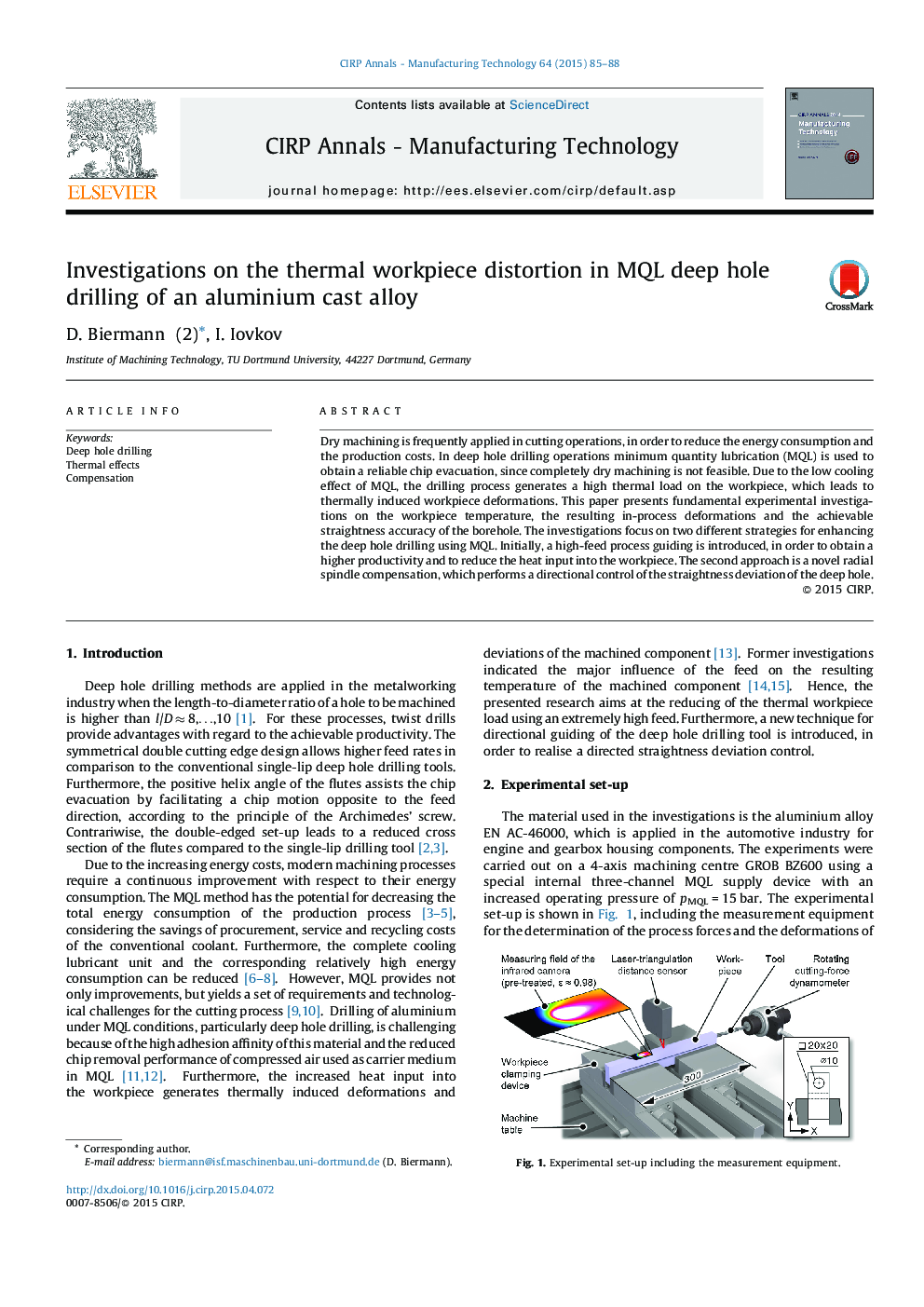| Article ID | Journal | Published Year | Pages | File Type |
|---|---|---|---|---|
| 10673329 | CIRP Annals - Manufacturing Technology | 2015 | 4 Pages |
Abstract
Dry machining is frequently applied in cutting operations, in order to reduce the energy consumption and the production costs. In deep hole drilling operations minimum quantity lubrication (MQL) is used to obtain a reliable chip evacuation, since completely dry machining is not feasible. Due to the low cooling effect of MQL, the drilling process generates a high thermal load on the workpiece, which leads to thermally induced workpiece deformations. This paper presents fundamental experimental investigations on the workpiece temperature, the resulting in-process deformations and the achievable straightness accuracy of the borehole. The investigations focus on two different strategies for enhancing the deep hole drilling using MQL. Initially, a high-feed process guiding is introduced, in order to obtain a higher productivity and to reduce the heat input into the workpiece. The second approach is a novel radial spindle compensation, which performs a directional control of the straightness deviation of the deep hole.
Related Topics
Physical Sciences and Engineering
Engineering
Industrial and Manufacturing Engineering
Authors
D. Biermann, I. Iovkov,
